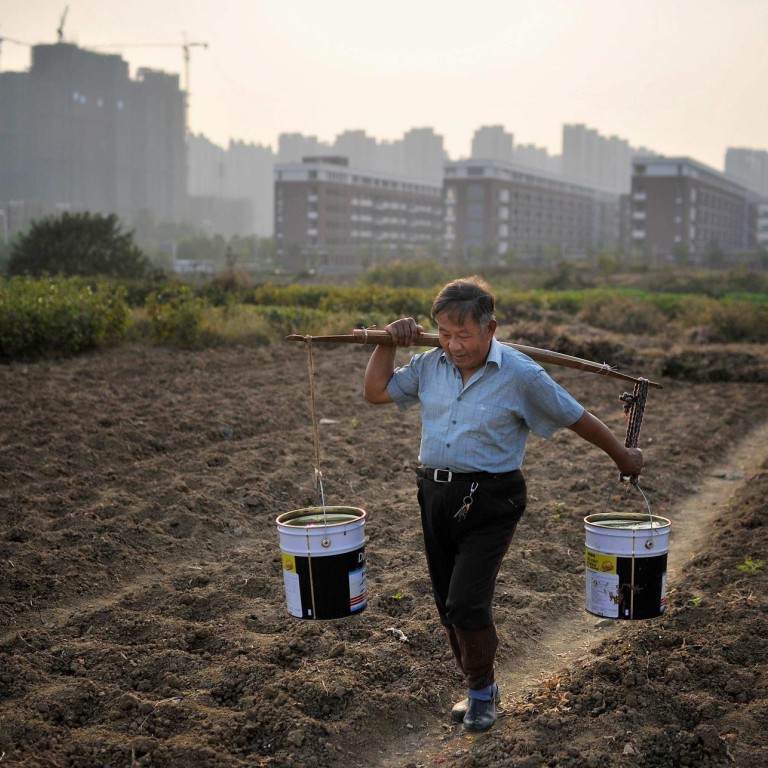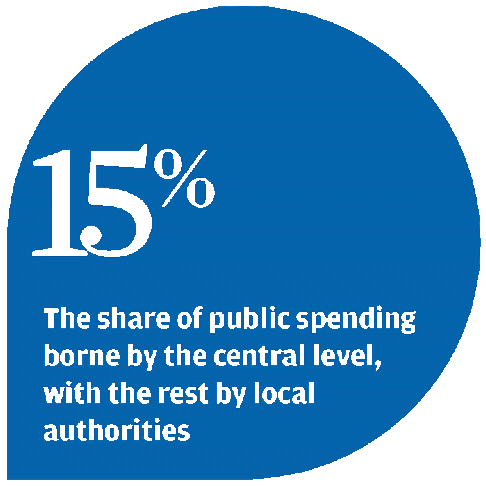
China takes aim at fiscal system in reform
Beijing plans to split the interests between the central and local levels more fairly, improve the budget system and revamp the tax structure
The mainland's top leadership has decided to make fiscal reform the centrepiece economic and social reforms that Beijing aims to launch over the next decade.

Beijing also plans to make the budget system fairer and more open, revamp the tax structure and may allow local governments to issue debt directly, although the leadership has yet to come up with a timetable for rolling out these measures.
The planned reforms, highlighted in a lengthy document released after the Communist Party Central Committee's third plenum last month, would be the biggest overhaul of the fiscal system, in place since 1994, and are expected to tackle the deep-rooted structural imbalances in the economy that have led to inefficient investment, property bubbles, a widening wealth gap and serious pollution.
"We have long believed that fiscal reform is key to addressing some major financial and economic risks around local government debt, soft budget constraints and the property bubble," Barclays Capital economist Chang Jian said. "We believe that without meaningful fiscal reform, acceleration in financial liberalisation would be premature and lead to greater financial risks."
One of the main problems lies in the huge gap between the limited revenue of local authorities and the heavy spending burden they shoulder in overseeing the country's provinces, cities, counties and townships.
The central government, which has the final say on major industrial projects and policies, only needs to come up with 15 per cent of total public spending. The rest must be made by various tiers of the local government, even though they share only half of the country's fiscal revenues.
"The unreasonable, unfair allocation of interests between the central government and local authorities has fuelled social conflicts," said Li Zuojun, a senior researcher with the State Council's Development Research Centre.
The restraints on their fiscal resources have prompted local governments to sell land to finance the building of infrastructure. They often ignore orders from the central government urging them to rein in investments in areas such as luxury housing and golf courses, making it difficult for Beijing to implement its macroeconomic policies effectively.
"The central government is always good at placing orders while local authorities have to pay the bills," said Liu Shangxi, a senior researcher with the Ministry of Finance.
The central government sometimes makes specific fiscal fund transfers to local authorities when there is a need for additional funding for certain projects, but the system is opaque and creates loopholes for corruption.
Researchers urged the central government to accept more responsibility for spending on areas such as social security benefits.
"The problems that have hindered a free flow of labour and capital should be corrected through building a unified nationwide network," State Information Centre chief economist Zhu Baoliang said.
Deutsche Bank chief Greater China economist Ma Jun and Tsinghua University professor Bai Chongen said in a research report that the country needed to boost public spending on health care, social security and environmental protection while slashing expenditures on banquets, cars and overseas trips.
They said the central government should raise its share of spending in areas that had a great impact on the whole country, such as the legal system, which Beijing has pledged to further delocalise, environmental regulation that needed regional co-operation, food and drug safety, and the building of infrastructure that spanned more than one region.
Local authorities should be given more flexibility to decide on local taxation, including such items as consumption taxes and vehicle purchase taxes, and collect a higher proportion of value-added tax and income tax revenues, they said.
Lou has also pledged to improve annual budget controls. The central government wants to overhaul the budget system, which aims for balanced spending and revenue, because it has resulted in a cyclical problem.
In years when economic growth is fast and collecting fiscal revenue is easy, finance departments tend to rein in the speed of revenue collection, but by doing so they leave more money in the economic system, exacerbating any overheating.
Likewise, their inclination to speed up the collection of fiscal revenue in tough years only adds to economic challenges.
Ma and Bai said the government budget should consider alleviating hidden risks rather than just focusing on solving short-term problems.
In the medium to long term, the pension fund gap, health-care costs, debt owed by local governments and the railway sector and other implicit or contingency debt would lead to "significant government debt risks", they said.
"Without reform, explicit government debt may, remarkably, exceed [gross domestic product] by 2050," Ma and Bai said.
In a resolution issued after the party plenum, the country's leaders pledged to allow local governments to raise funds through multiple methods including issuing municipal bonds.
The rapid increase in local government debt - borrowed through financing platforms in a bid to sidestep policy hurdles - has sparked concern in Beijing about a deterioration in the quality of bank assets.
Local government financing platforms may have accumulated about 20 trillion yuan (HK$25.4 trillion) of debt by the end of June, almost double the 10.7 trillion yuan reported by the National Audit Office in 2010, Zhu said.
"While the total amount remains under control, the fast increase in debt merits attention," he said.

